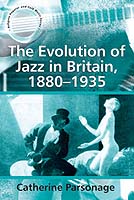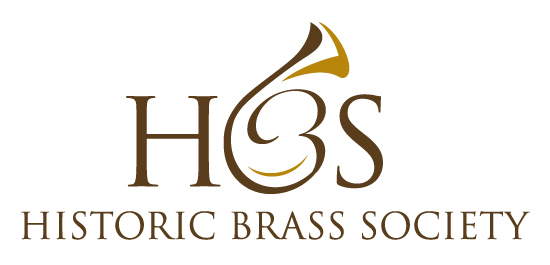
Catherine Parsonage, The Evolution of Jazz in Britain, 1880-1935, Ashgate, 2005.
ISBN 978-0-7546-5076-8. 322 pages. www.ashgate.com.
It is relatively unnoticed that the great Marxist historian Eric Hobsbawm wrote extensively on jazz under cover of the nom de plume Francis Newton (derived from the name of Billie Holiday's Marxist trumpeter Frankie Newton). I have always felt drawn to his reasoning that the success of jazz on a global scale - the rapidly shared ownership of it by a world-wide audience - was not just a consequence of the impact of the music itself. Hobsbawm offered the idea that "American Negro music benefited from being American. It was received not merely as the exotic, the primitive, the non-bourgeois, but as the modern." He was not speaking of modernism here, but of modernity. The point is a simple one, but it is all the more telling because of that: jazz, as one of the two great cultural exports of the USA (the other is the movie), contained a new mode of communication, but it was received so readily and with such great attention - certainly in the UK - because it was a part of the much broader phenomenon of Americanism: a phenomenon that reconfigured popular culture and touched virtually every aspect of the life of ordinary people. In current parlance, we might say that for most of the twentieth century anything from America was cool in Europe.
Catherine Parsonage's admirable book sort of picks up this thread, but her approach has a somewhat different emphasis. The Americanism of jazz is clearly there, but she examines a network of influences and especially the impact of black entertainment as the exotic, a characteristic which she believes gave succour to those who sought cultural change after the ravages of war and social deprivation. Dr. Parsonage makes her case especially persuasively because of the emphasis she places on the deep history of black entertainment in Britain and her avowed intent to explain the place of jazz in the UK not merely in terms of reception but as a "reciprocal process," a process which was "more complex than a simple replication or reflection of developments in America." Her title The Evolution of Jazz in Britain is carefully chosen, because this is not just about British jazz: it contains key arguments about key themes in the history of jazz and its antecedents in a cultural domain that was very different from the one from which jazz issued. It makes no attempt at a chronicle; rather Parsonage takes a thematic approach. The nine chapters are arranged in two unequal parts, "Historical and Theoretical Perspectives" and "The Evolving Presence of Jazz in Britain." In both she demonstrates a sound knowledge of both the music and the theoretical perspectives that have so far been exploited on this subject. Some topics have particularly caught her attention. For example, she devotes a whole chapter to the reception of the British productions of Will Marion Cook's In Dahomey: A Negro Musical Comedy.
This is probably the best book of its type on British jazz, and it lays the ground for further studies, hopefully by Parsonage, who knows the sources both in the UK and the USA, and has the ability to look at them from a variety of perspectives. I have just one quibble, and that is the end date for this study. The book has its origins in the author's 2002 City University PhD thesis, which looked at the period between 1880 and 1927, and this explains the emphasis on the early reception of black music culture in Britain. The period is quite properly extended here - to 1935. I gather that this end date was chosen because of changes to British laws that limited work permits of foreign musicians working in the UK. This is logical enough, but it still seems a little odd - after all, events that got underway four years later might have provided a more significant watershed. Those extra few years would also have provided an opportunity to take into account the impact of a certain Benny Carter, who arrived in London in 1936 via other European resorts and quickly established himself as the staff arranger for the BBC dance orchestra. Carter's impact on jazz in London was monumental. His arrangements and his playing had a direct and memorable influence on an important generation of British jazz musicians because of who and what he was, and because he worked at the heart of the British popular music establishment. Given the quality of this book and Parsonage's obvious destiny to be a major figure in this orbit of study, this may have been a missed opportunity. But this really is just a quibble; Dr Parsonage has written a book containing impressive insights: it will endure as an important contribution to this field of study.
--Trevor Herbert



